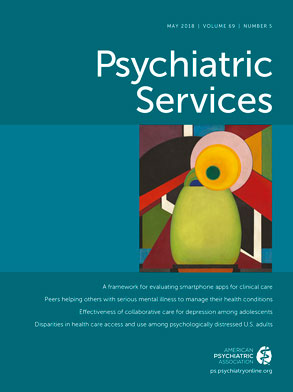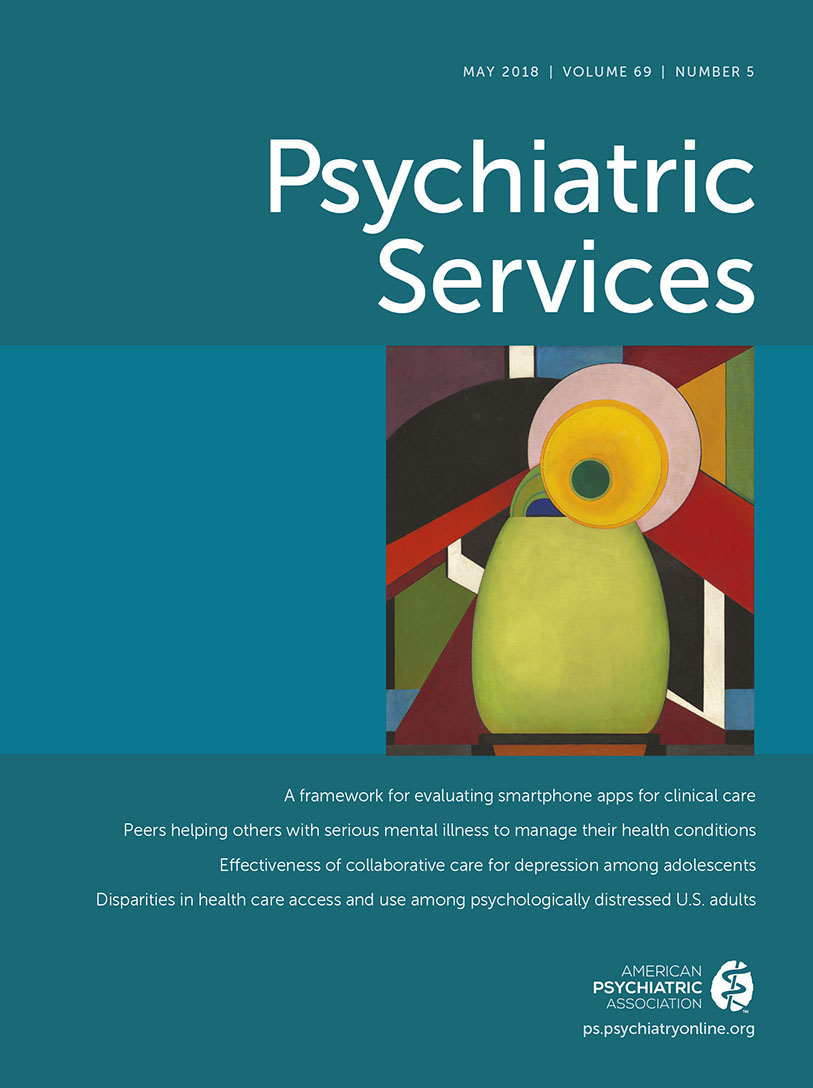As CSC services grow, models to guide the dissemination of this evidence-based practice are needed. In this column, we review the establishment of a specialized clinical program for FEP in Maricopa County, Arizona, and highlight the unique community-academic partnership that supports this program.
IMHR-EPICENTER: Coordinated Specialty Care in a Youth-Friendly Environment
In 2010, the Institute for Mental Health Research (IMHR), a nonprofit organization that funds mental health research throughout Arizona, began exploring strategies to bring specialized clinical services for FEP to Maricopa County. These efforts were motivated by several factors, including a glaring lack of specialized care for FEP in one of the country’s major metropolitan areas and a growing interest among community donors to support clinical services rather than clinical research.
To assist in this endeavor, IMHR partnered with the Early Psychosis Intervention Center (EPICENTER), a specialized clinical research center for FEP located at the University of Arizona in Pima County. Having previously provided research funding to EPICENTER, IMHR was aware of the clinical benefits and cost savings that this service was providing in Pima County (
5). Through this partnership, efforts to develop a new CSC program in Maricopa County were fostered by the unique strengths of EPICENTER and IMHR. In 2010, EPICENTER was one of a handful of U.S. centers with expertise in the delivery of specialized care for FEP. With over a decade of experience in fundraising, IMHR possessed the necessary infrastructure and relationships with potential donors to oversee fundraising to support the new program. In addition, because of IMHR’s strong relationships with mental health stakeholder groups in Maricopa County, it engaged numerous local stakeholders in the development of the new FEP program. For example, IMHR secured review and vetting of the proposed clinical and financial plan for the new center by a team of local researchers, mental health clinicians, staff from public and private insurance companies, clinical administrators, and local entrepreneurs with extensive financial experience. IMHR also established a board of directors for the new program (now known as IMHR-EPICENTER) composed of individuals representing groups with an interest in FEP, including representatives from the judicial system, local businesses, and Mercy Maricopa Integrated Care, the agency responsible for overseeing public mental health services in Maricopa County.
Concurrent to the start of discussions on establishing this new FEP center in Maricopa County, growing data from programs such as headspace in Australia and Jigsaw in Ireland were suggesting that delivering mental health services within a youth-friendly, stigma-free environment facilitated increased access and engagement with mental health services among youths and young adults (
6). Given the clear association of the duration of untreated psychosis and worse clinical outcomes (
7), the potential benefits of this youth-friendly approach resonated with the IMHR-EPICENTER development team and inspired the clinic’s design. Early discussions about situating the CSC program in an existing mental health clinic were discarded, replaced by a new vision of a freestanding, youth-friendly clinic in an easily accessible neighborhood with settings where youths and young adults normally congregate (for example, schools, coffee shops, and libraries).
However, this new vision created challenges. Specifically, situating a CSC program outside an existing mental health clinic would make it difficult to leverage existing clinical and logistical infrastructure to support the CSC team (for example, clinical staff, electronic medical record system, and established paneling with private and public insurance companies). Thus, from 2011 to 2015, staff from IMHR and EPICENTER began an ambitious campaign in Maricopa County to secure funds to support the new program and its continued operation for three years, at which point it was estimated that the program would be largely self-sufficient on the basis of clinical revenue. Efforts were facilitated by the unique strengths of this community-academic partnership. Drawing on strong relationships with mental health stakeholders in the county, IMHR arranged numerous meetings to pitch the proposed clinic to potential funders (for example, insurance companies, the local regional behavioral health authority [RBHA], and private donors). Moreover, with a board of directors with expertise in financial modeling, community development, and launching new businesses, IMHR developed a solid business plan that outlined financial strategies to facilitate successful start-up and continued program sustainability.
As the academic partner, EPICENTER contributed to this campaign by providing extensive data supporting the clinical benefits and cost-effectiveness of the CSC program at the University of Arizona on which the new program would be modeled. Over the next four years, more than $1 million were raised to support IMHR-EPICENTER, with funds from insurance companies, charitable foundations, the Arizona Office of the Attorney General, and private donors. These funds were complemented with $344,000 in MHBG funds and monthly block payments of more than $100,000 to reimburse services provided to individuals covered by Medicaid. Finally, drawing on data demonstrating the clinical benefits and cost-effectiveness of EPICENTER care (
5), IMHR-EPICENTER successfully negotiated with Mercy Maricopa Integrated Care to receive enhanced reimbursement rates for services provided at the clinic to Medicaid enrollees and performance-based yearly financial bonuses for achieving certain outcomes (
Table 1).
After fundraising goals were reached, efforts were made to identify a location for the clinic that was easily accessible—centrally located in Maricopa County and accessible via public transportation—and situated in a youth-friendly neighborhood. Staff from IMHR and EPICENTER toured potential sites, and in collaboration with local realtors, a site in central Phoenix that met the desired specifications was identified. The building, located in the Phoenix Art District, is near numerous bus stops, is a stop for the Phoenix light rail system, and is part of a neighborhood with numerous sites frequented by youths and young adults, such as coffee shops, high schools and colleges, and an LGBT youth center. A long-term lease was secured, and the building was extensively renovated to create a youth-friendly atmosphere. For example, nearly half the space was reserved as a waiting area with many seating areas and access to recreational activities geared toward youths and young adults (for example, televisions, video game consoles, computers with Internet access and a printer, and quiet areas to sit and read). The design of the waiting area was guided by consultation with the Mercy Maricopa Youth Leadership Council, a committee of youths and young adults with lived experience of mental illness, substance use, or foster care who advise the local RBHA. [A photo of the waiting area in included in an online supplement to this column.] Also, in collaboration with Art Awakenings, a psychosocial rehabilitation program for individuals with lived experience of mental illness, a mural was painted on the building’s front depicting recovery-oriented imagery of youths and young adults developing strong peer and familial networks and participating in work or school.
In October 2016, staffed by an executive director and two counselors, IMHR-EPICENTER began providing CSC to individuals with FEP in Maricopa County. Since then, IMHR-EPICENTER staff has expanded to include four counselors, a nurse practitioner, a lead clinician, and a vocational specialist. Before working with clients, all staff have completed intensive, in-person training with the founder of EPICENTER in the manualized treatments used in EPICENTER care. These included two forms of individual psychotherapy (cognitive-behavioral therapy and metacognitive remediation therapy) and a step-based approach to family psychoeducation ranging in intensity from orientation to the clinic to participation in a multifamily psychoeducation group. Medication management is guided by the RAISE NAVIGATE psychopharmacology manual (
8), and supported employment is delivered using the individual placement and support model (
9). Moreover, consistent with the EPICENTER model, all clinicians have been trained in a comprehensive assessment battery to be administered to clients at enrollment and repeated every six months during EPICENTER participation. The primary goals of these assessments are to enrich treatment planning discussions with clients and to provide them with objective information about their successes in the program. The assessments also provide quality improvement data for continuous evaluation of the program’s effectiveness.

